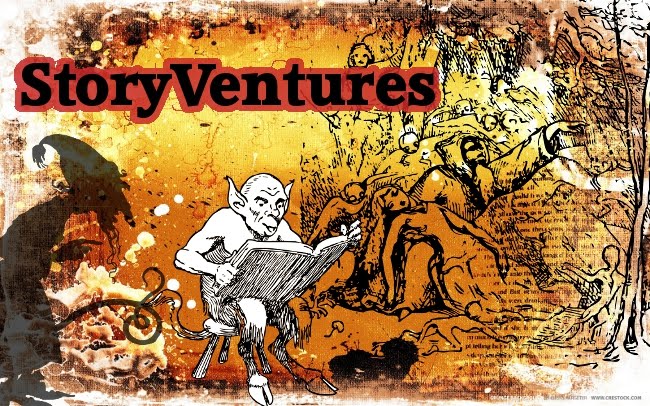I primarily write YA urban fantasy and literature with elements of magical realism, and I appreciate characters who journey through life weirder and stranger than most. I like the quirky. I like the magical. I like the bizarre. I guess you can blame it on the fact that I am a ginger.
But why do I like those things? Even more specifically, why do I like reading and writing about those elements in literature? Why do I write about magic and other fantastical things that most would agree could never happen or exist in our world? Why do I write period?
WHY DO YOU WRITE?
I can't remember who said it or when I heard it, but not long ago I heard someone ask, "What's the point of fantasy? It's not real." It may have been a random dude taking his first steps into the fantasy section of the bookstore. It may have been the person at the bus stop who only reads the daily paper. It may have been my father, who only reads Grisham, true crime, and the occasional cozy mystery. It may have been my mother, who enjoys romance novels. It may have been the residents at the physics camp I worked at this summer--the students who analyzed, calculated, and measured every move Tom Cruise made in the new Mission Impossible movie, so that they could simply prove the impossible nature of his fantastic feats. I quote: "That's so ridiculous! He so would've died there. That's impossible" Well, no duh. Just take a look at the title.
What's the point of fantasy? is such an important question, one I feel all writers in this genre should attempt to answer--not only in an effort to better understand the genre as a whole but to better understand their writing, their process, and what they hope to achieve with their fantastical narratives.
If someone's giving characters magic or powers or placing them in mystical new realms simply for the sake of placing them there, if that magic doesn't work to further characterize that individual and help them grow or reach conclusions about their own story, then why not make them "normal," why not strip them of those powers that confuse them or hurt them or make them miserable?
If the story isn't enhanced by the magic (I use magic as an umbrella term for unordinary elements), then it really doesn't need to be there, right? The magic in fantasy exists to teach, to misuse, to learn from, to change, to transform, to lead, to destroy, to rebuild--to be something that is so alive the readers can taste it, hear it, see it, be amazed by it.
Fantasy is such a powerful genre because it has the power to pull us out of our daily world. With fantasy, the possibilities are LITERALLY limitless. While I was surrounded by so many mathematical and science-oriented minds this summer, it really got me thinking about fantasy and how some individuals are more apt to explore it and be fascinated by it.
Suspend your disbelief for a moment, I wanted to say to those children who calculated the velocity of Tom Cruise as his car crashed and crunched into the concrete. Turn off your calculative brain and experience the impossible. Let your mind wander; let your body go to a place where calculations don't matter. Try and let yourself be awed by the extraordinary.
I don't think I've fully answered this question yet, but I look forward to exploring it more and more as I continue my journey as a reader and writer. If you're out there and you're a writer of fantasy (or any other genre), why is it that you write? I'd love to make new blogging friends. Don't be afraid to comment.
I write fantasy because I like seeing what the world looks like upside down. And I like standing on my head.
Image by Nick























No comments:
Post a Comment